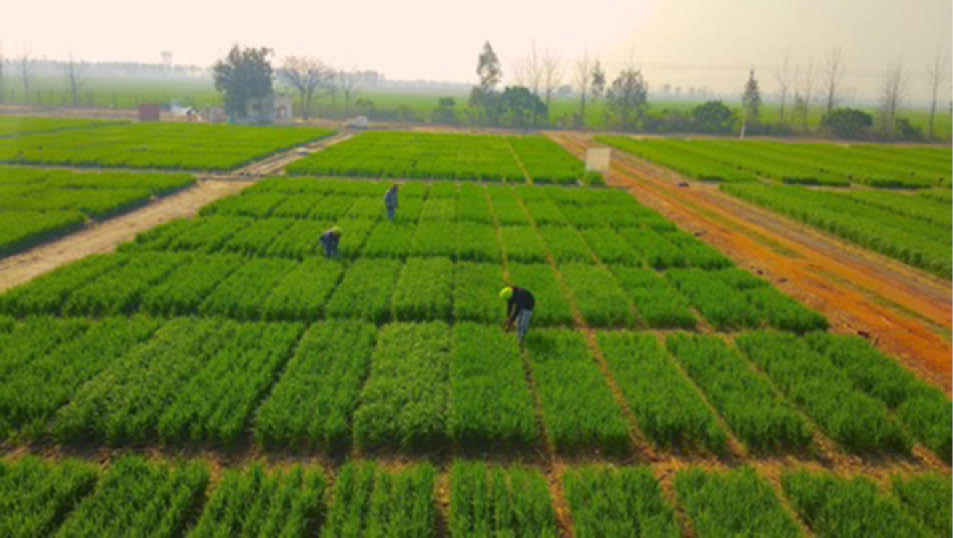We suffered devastating losses this year – Katsina irrigation farmers
Irrigation farmers in Katsina State have decried the shortage of the new naira notes and the high cost of fuel, which will adversely affect their production this year. The farmers said the new naira policy has crashed the price of farm produce as buyers found it hard to access cash to buy their produce. Musa […]

Sub-surface drip irrigation- trials
Irrigation farmers in Katsina State have decried the shortage of the new naira notes and the high cost of fuel, which will adversely affect their production this year.
The farmers said the new naira policy has crashed the price of farm produce as buyers found it hard to access cash to buy their produce.
Musa Lawal Kokami, a tomato farmer in Danja LGA, said they initially expected to realise huge revenue this year as only a few farmers were able to produce tomatoes, but the CBN’s naira policy has scuttled that.
“Because of the high cost of inputs this year, many farmers opted for the production of onions, cabbage and wheat, and the few of us that managed to produce the tomato had hoped to smile to the bank, but this new naira issue has reversed everything.
Kebbi gov approves N1.1bn palliative to cushion currency, fuel scarcity
Kebbi, core investors, NNPC sign for biofuel refinery take off
“A small basket of tomatoes that are supposed to be sold for at least N2,000 is now N1,000,” Lawal said.
He added that even at the lowest price, merchants were buying the produce from them on credit while others paid via bank transfers.
“A typical farmer prefers to be paid in cash at his farm so that he can settle the labourers and other miscellaneous bills. Remember, we bought some things like pesticides, fertiliser and baskets on credit; sometimes we even borrowed money pending the harvest of our crops.
“Therefore, when the buyer makes his payment through bank transfers, how can I access cash in my village to settle my debt?” Lawal asked rhetorically.
Another farmer, Aliyu Muhammad from Mairuwa in Faskari LGA, said another thing disturbing vegetable farmers this year was the high cost of fuel to run water pumps.
“A litre now is N360 and if one is working on a riverside, his farm might be 200 metres or more away from the river, and if it is two acres, he needs not less than 20 litres of petrol to water it; that is N7,200 and he has to water the farm four times a month in the four months’ life of the crop, which has a total cost of N115,200.”
Muhammad further said some farmers had to minimise the cost by reducing the watering interval to 10 or 12 days but that had consequences on the fruits the crop bears and their sizes.
“Those pumping water from tube wells consume more fuel as the machine has to pump the water from many metres down to the farms,” he said.
Usman Dalhatu, a cabbage farmer, said this year he was at a loss as the price of cabbage crashed to N1,500 per bag.
“A bag of cabbage that was sold at N6,000 two months back is now N1,500 and I have to sell it otherwise it gets spoilt on the farm. We are just doing it to keep ourselves busy and farming is saving us some money while only God knows what will transpire in the near future,” Dalhatu said.
He added that in the prevailing situation, the cabbage merchants are the ones that benefit much more than the farmers as they transported it to the cities and urban areas like Lagos, Abuja and Kano where they are priced higher.
